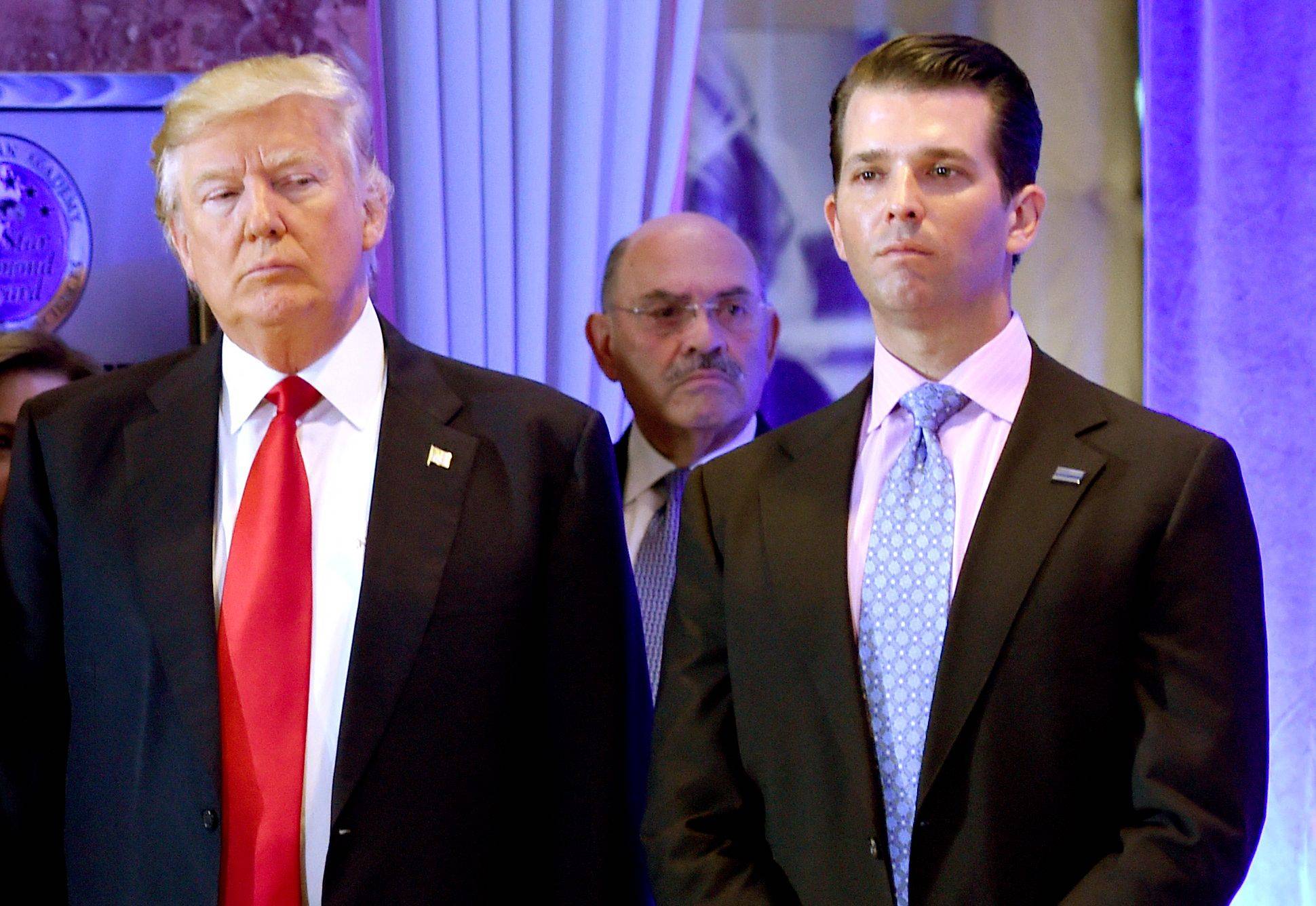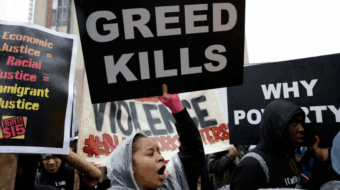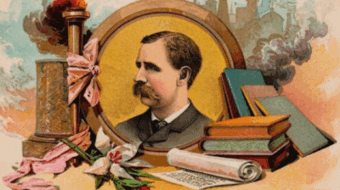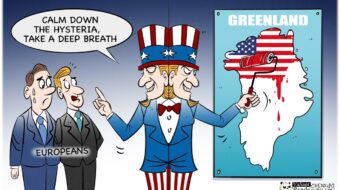
NEW YORK—The late President Harry S. Truman sported a sign on his desk that read: “The buck stops here.” Well, in the 15-count indictment against former Oval Office occupant Donald Trump’s company and its chief financial officer, Allen Weisselberg, for tax evasion, fraud, grand larceny, and falsifying tax records, change that to read “The check stops here”—on Trump’s desk, often signed by Trump himself.
Manhattan District Attorney Cyrus Vance, Jr., indicted the Trump Organization, Trump’s privately-held and wholly-owned conglomerate, and Weisselberg on 15 criminal counts. The frauds started in 2005 and continued through this year, the grand jury indictment says.
Weisselberg’s attorneys vowed to fight the charges in court. Trump himself called the indictment part of his common “Democratic witch hunt” charge and told a Fox News host he’s made a decision—but wouldn’t disclose it—on running for president in 2024. But he sounded like a candidate.
If so, he could well be a candidate running while facing criminal charges.
Buried in the 25-page indictment are outright instances where Trump took part in the scheme. For five years, 2012-17, Trump personally and then through the Donald Trump Revocable Trust, which he controls, signed checks worth $359,058 for private school tuition for two of Weisselberg’s kids.
That was just one form of compensation Weisselberg didn’t report on his state or federal taxes for the last 16 years. He also didn’t report it on his New York City income taxes because, the indictment makes clear, Weisselberg lied. He declared he didn’t live in the city until 2017, even though he and his wife dwelt on Riverside Avenue on the Upper West Side—and still do.
The Trump Organization paid for their rent, too. As the indictment says: “On or about March 31, 2005, the Trump Corporation”—the business name for Trump’s firm—“acting through its president, entered into a lease” for the apartment, “designating Allen Weisselberg and his spouse as the sole occupants.”
All this and more—utility bills, Internet and cable fees, his-and-hers luxury Mercedes-Benzes, and garage fees for them—totaled at least $1.76 million over the years in unreported taxable compensation to Weisselberg. The Trump Organization’s internal spreadsheets detailed the payments; the firm’s and Weisselberg’s tax returns didn’t.
One point the scholars did not touch on is that while Weisselberg and the Trump Organization broke tax laws, according to the indictment, to reap ill-gotten gains, the capitalist class wrote the laws that let them do the same thing—legally.
“By 2015, for example, the overall federal tax rate faced by the top 1% was actually a bit lower than the rate in 1979,” Economic Policy Institute analyst Josh Bivens wrote last year. “In short, taxes on the richest households have been a radically underutilized tool in the effort to push back against the rising inequality of recent decades.” And his figures predated the Trump-GOP tax cut of 2017, which only made inequality worse.
Legal experts speaking to the media and in a Brookings Institution analysis said what will happen now depends on whether Weisselberg, 73, decides to plead guilty and sing. So far, he hasn’t.
The Brookings report, by a four-person bipartisan legal team headed by former Reagan-Bush top Justice Department official Donald Ayer, turned to documents filed in various courts even before Vance’s indictment for its evaluation of whether Trump himself could face trial.
“The payments under investigation reportedly include private school tuition, rents on apartments, and car leases. Based upon this evidence, as well as the handling of the hush money reimbursements, the DANY (Vance) could potentially charge the Trump Organization or its executives, including Trump himself, with falsification of business records. The offense is upgraded to a felony if prosecutors can prove intent to further or conceal another criminal offense, such as tax fraud,” the Brookings team said. Falsification is among the counts in Vance’s indictment.
“It is likely prosecutors are scrutinizing charges of tax fraud against not only the Trump Organization but Trump and others,” the analysis says. Tax fraud is among the counts against Weisselberg, the company, and other corporate officers including “un-indicted co-conspirator #1.”
“Under New York law, a person is guilty of tax fraud if that person commits an act of tax fraud with the intent to evade any tax or defraud the state by paying less than the tax liability that is due,” the Brookings team added.
“The Trump Organization, Trump, or other individuals involved would have committed a ‘tax fraud act’ if they failed to submit a tax report or return, filed a fraudulent tax return or other document with materially wrong information, failed to pay tax due to New York, failed to pay taxes, or schemed to cheat the State of New York by making or providing fraudulent representations that are material and related to a tax.”
All that was in the counts against Weisselberg and the Trump Organization.
Other legal scholars, speaking to various media, speculated the prosecutors might have enough for Weisselberg to turn on Trump and provide evidence in exchange for a reduced sentence, or none at all.
But the probers aren’t done yet. Vance’s deputy, Carey Dunne, said the DA’s investigation would continue even after Vance retires at the end of this year. Other legal scholars said a trial could start as late as 2023, allowing time for more digging for evidence of Trump’s wrongdoing and legal delays, for which Trump and his lawyers are well-known.
That “more evidence” includes misleading evaluations on his golf club in Westchester County in order to claim a conservation tax easement and shady financing arrangements involving Trump Tower in Manhattan and Trump’s 80-story office-retail-residential tower at 401 N. Wabash Ave., in Chicago.
And New York State Attorney General Letitia “Tish” James, who is running a parallel investigation of Trump’s real estate dealings—including potential tax fraud there, too—said her probe is continuing.
“This investigation will continue, and we will follow the facts and the law wherever they may lead,” she declared.
Further, the Brookings team reminded readers that no person, including Trump, is above the law. So did the good-government group Citizens for Responsibility and Ethics in Washington (CREW).
“It is hard to overstate how big a deal this is,” said CREW President Noah Bookbinder, a former federal prosecutor. “Criminal charges against corporations are exceedingly rare. For the Trump Organization and one of its top executives to face 15 counts on a scheme to defraud that goes back at least 15 years is extraordinary. These are serious charges, and they may be just the beginning.
“Donald Trump, both as president and in his private life, has a long record of ignoring the law for his personal benefit. Today’s indictment is a much-needed step toward accountability for these abuses, and we hope and trust there will be more accountability to come.”
“At the heart of prosecutors’ thinking, as a basic tenet of the American legal system to be preserved above all others, will be the idea that our laws apply equally to everyone and that no person is above the law,” the Brookings team concluded.
That principle strongly suggests if there is powerful evidence of substantial wrongdoing to secure personal advantage—evidence that would plainly cause others to be held to account—it should lead to prosecution even in the unusual case of a former president, his company, and its employees.”
All of which suggests remembering another well-known saying attributed to another New Yorker—the late Yankees catcher Yogi Berra: “It ain’t over till it’s over.”










